A tense, emotional, draining title fight was finally settled in the most intense fashion in 2016 - and it was Nico Rosberg who emerged triumphant. Both he and team mate Lewis Hamilton fought like giants - and that only enhanced the ferocity with which Rosberg climbed his way to becoming F1's 33rd world champion...
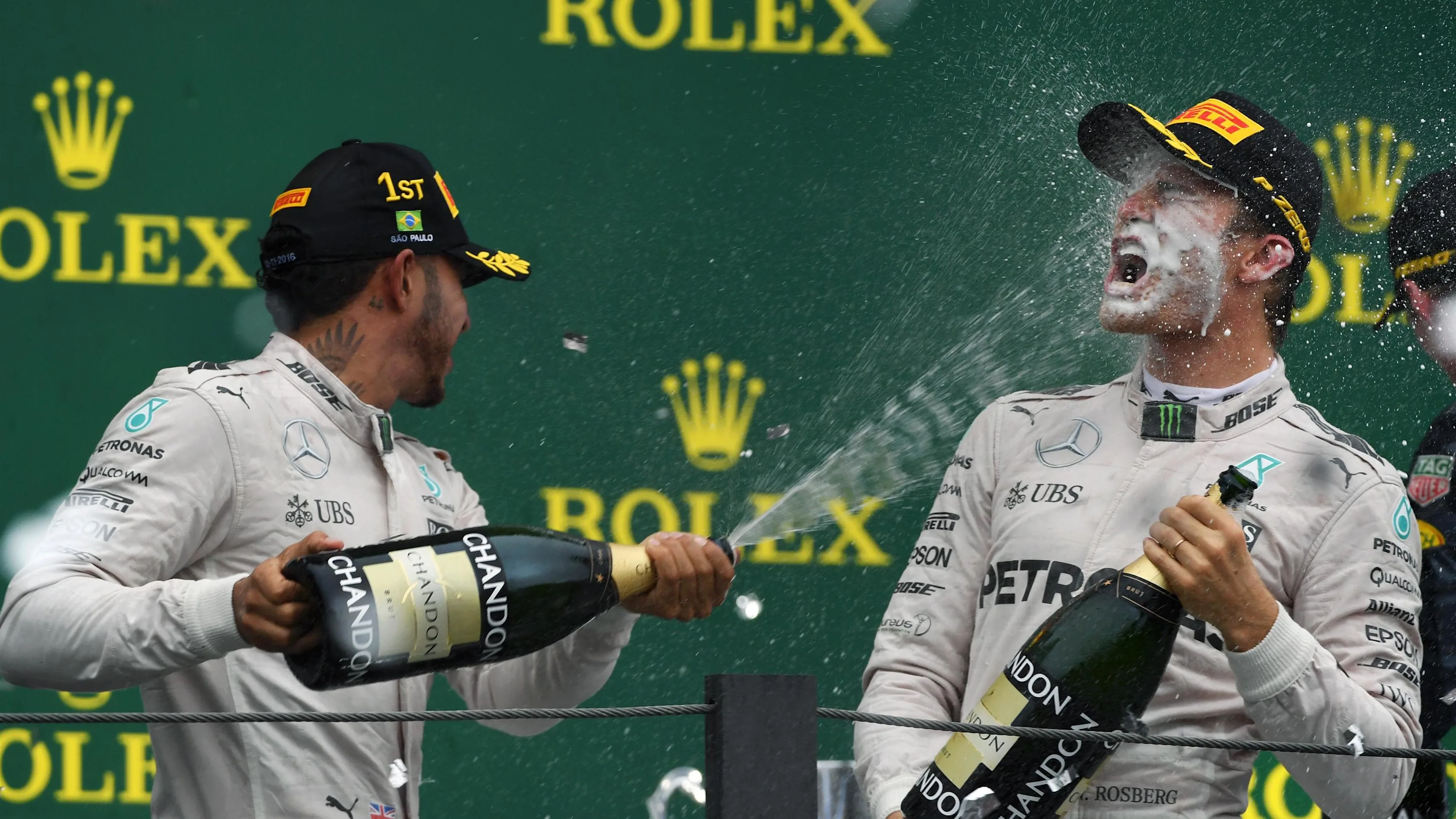
Mercedes won 19 of the season's 21 races - Hamilton claimed 10, Rosberg nine
The Mercedes drivers weren't the only headline acts of the year. Red Bull's Max Verstappen staked his claim as the sport's superstar of the future; team mate Daniel Ricciardo did everything to convince of his own world champion credentials; and stand-out rookies like Stoffel Vandoorne, Jolyon Palmer, Pascal Wehrlein and Esteban Ocon arrived in style.
But, perhaps fittingly given the major regulation shake-up coming for 2017, this year also saw a changing of the 'Old Guard', with the retirements not just of Felipe Massa and Jenson Button, but also Rosberg - who announced his shock departure just days after securing his first drivers' crown - as well as the unexpected removal of Ron Dennis from control at McLaren.
Both on and off the track there was plenty to keep even the most cynical fans engaged, even when it soon became clear that far from building on what they had achieved with three wins in 2015, Ferrari were falling farther behind Mercedes as Red Bull gathered pace and stepped up to pose a greater challenge to the Silver Arrows.
So how did it all unfold?
Predictably, the title fight was between Rosberg and Hamilton at Mercedes. It was a story in several parts, which notably saw Hamilton coming back from mechanical adversity to close down a 43-point deficit and turn it into a 19-point advantage, before Rosberg staged an equally dramatic fightback of his own. And it was that, Hamilton's engine failure in Malaysia notwithstanding, which ensured that the German's subsequent success was not merely a matter of luck and the 100 percent mechanical reliability that he enjoyed at his team mate's expense. Hamilton may have deserved a fourth title, but equally Rosberg deserved a first.
Having won the final three rounds of 2015, March saw Rosberg pick up where he'd left off as he made an excellent start to his new season with victories in Australia and Bahrain where, on each occasion, Hamilton made poor getaways due, in part, to the ongoing delicacy of Mercedes' clutch. After finishing second, then third behind Ferrari's Kimi Raikkonen, that left him on 33 points to Rosberg's 50.
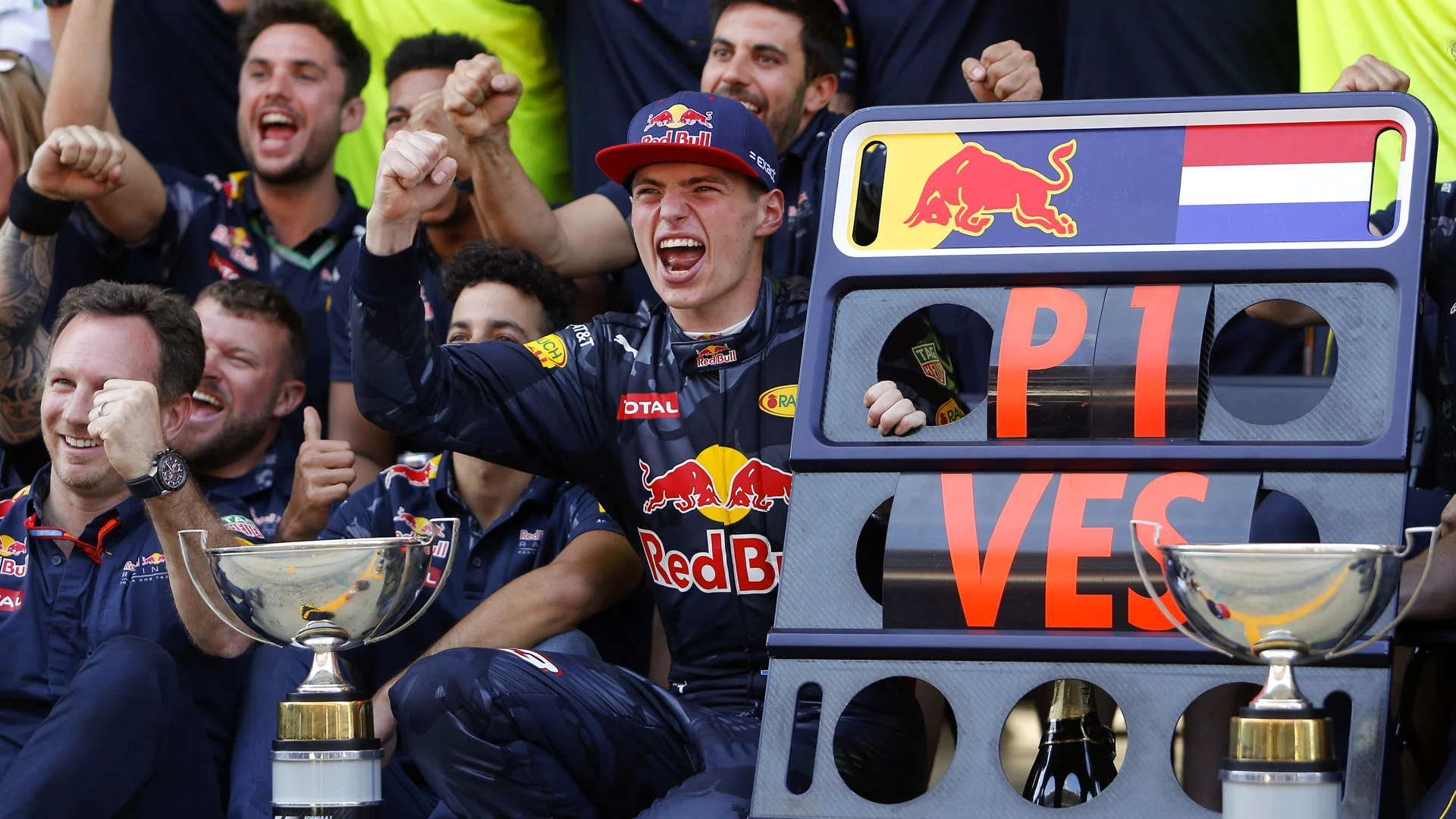
Red Bull emerged as Mercedes' main opponents - with Verstappen astonishing all by winning on debut with the team, and breaking all manner of records in the process
Then came China and Russia, and the start of the mechanical ills that would later impact so strongly on Hamilton's title aspirations.
Rosberg won again in China, as Hamilton had to fight back following a three grid-place drop for an unscheduled gearbox change after damage sustained in Bahrain - which was then compounded by his first MGU-H failure in qualifying. That left him at the back of the grid and he was delayed by the celebrated clash between the Ferraris after Daniil Kvyat - then at Red Bull - had surprised Sebastian Vettel in the first corner. The Russian gained a podium as a result; Hamilton was down in seventh, and now trailed Rosberg by 39 points to 75.
Rosberg made it four from four in Russia as Hamilton's second ERS failure in qualifying, this time the MGU-K in Q2, left him playing catch-up again. He managed to climb to second this time, so the scores now were Rosberg 100, Hamilton 57.
Verstappen's astounding breakthrough
If Hamilton was under pressure, the tension only heightened in Spain as he and Rosberg collided on the opening lap - the most serious incident of their long and oft-tempestuous time together as team mates.
Hamilton kicked the sequence off, as a poor start from pole allowed Rosberg to jump ahead. The German, though, was in the wrong engine mode and, as he reset it, Hamilton attempted to dive down the inside. Rosberg went to cover the move, but Hamilton was already committed, and the pair crashed spectacularly, eliminating each other from the race.
If that was dramatic, so too was the race's conclusion. Verstappen, suddenly promoted to Red Bull in place of Kvyat, drove like a veteran on his first outing, holding Raikkonen at bay despite intense late pressure to claim a maiden Grand Prix win - the youngest driver to ever do so, by some margin.
Hamilton actually fell to third in the championship, behind Raikkonen, as a result of that race - but he fought back in style, and with the help of fortune, in Monaco. Rosberg struggled in the rain and came home seventh; Hamilton triumphed, albeit after Red Bull cost Ricciardo a deserved win by screwing up his final pit stop.
Hamilton's payback for his 2015 loss in the Principality improved his position, with 82 points to Rosberg's 106. He then won again in Canada where Rosberg was only fifth, leaving them at 116 to 107.
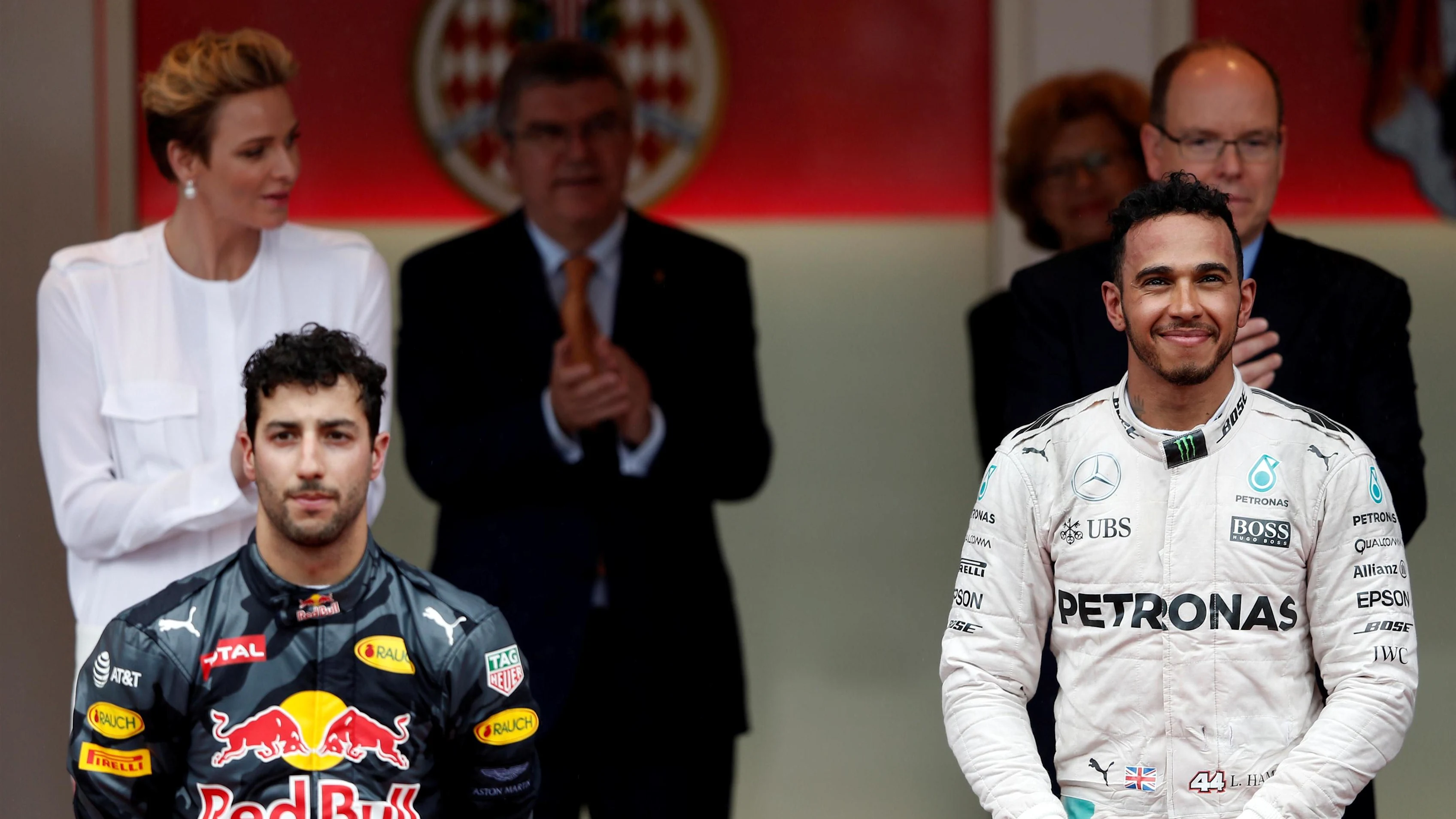
Contrasting emotions on the Monaco podium, as a pit stop error costs Ricciardo the chance of a first victory in the Principality
Rosberg bounced back from his two bad races to dominate in Baku, where Hamilton hurt his chances by making a rare mistake in qualifying before Mercedes started him in the wrong engine mode, consigning him to fifth place. Now it was 141 for Rosberg, 117 for Hamilton. And at that stage Vettel was still in touch with Hamilton, with 96.
Into Austria, and the second flashpoint of the season. Hamilton had led, lost out with a slow pit stop, but then came back hard at his team mate. On the final lap Hamilton launched his attack, but Rosberg's controversial defence led to contact. The Briton recovered to win; the loss of a front wing, and a penalty for causing the collision, dropped Rosberg to fourth. 153 to 142.
Now it was ‘Hammertime', as Hamilton won again in Great Britain, Hungary and Germany, as Rosberg struggled to third at Silverstone behind upstart Verstappen, and only fourth on his home turf after a slow start. Before the summer break, the scores were now Hamilton 217, Rosberg 198. The German had just three podiums in eight races - and the tide, it seemed, had turned.
At Spa, however, Mercedes played musical engines as Hamilton took massive grid penalties for using more than his allotted tally of power units and ERS systems, in order to harvest enough to get him through to the end of the year. His early-season problems were coming home to roost. Rosberg won easily, as Hamilton recovered from the back of the grid to third. 232 to 223, in Hamilton's favour.
Rosberg won at Monza after Hamilton lost the advantage of pole with another poor start and had to fight up to second, then annihilated everyone in Singapore to win under huge pressure from Ricciardo. With third place, after a hydraulic problem had compromised things by losing him track time in FP2, Hamilton's grip was slipping again. Rosberg 273, Hamilton 265.
Then came Malaysia, where Hamilton seemed to have victory locked up, and Rosberg was the one battling back after being spun by Vettel in the first corner.
Things changed dramatically on the 41st lap. The Englishman's new engine suffered a totally unexpected big-end bearing failure, and Hamilton bowed out in smoky despair. That was where his title hopes took their biggest hit, for he not only lost 25 points but Rosberg gained a further three by finishing third behind the Red Bulls of Daniel Ricciardo and Verstappen, instead of fourth.
With five races left, Rosberg was suddenly sitting pretty with 288 points to Hamilton's 265.
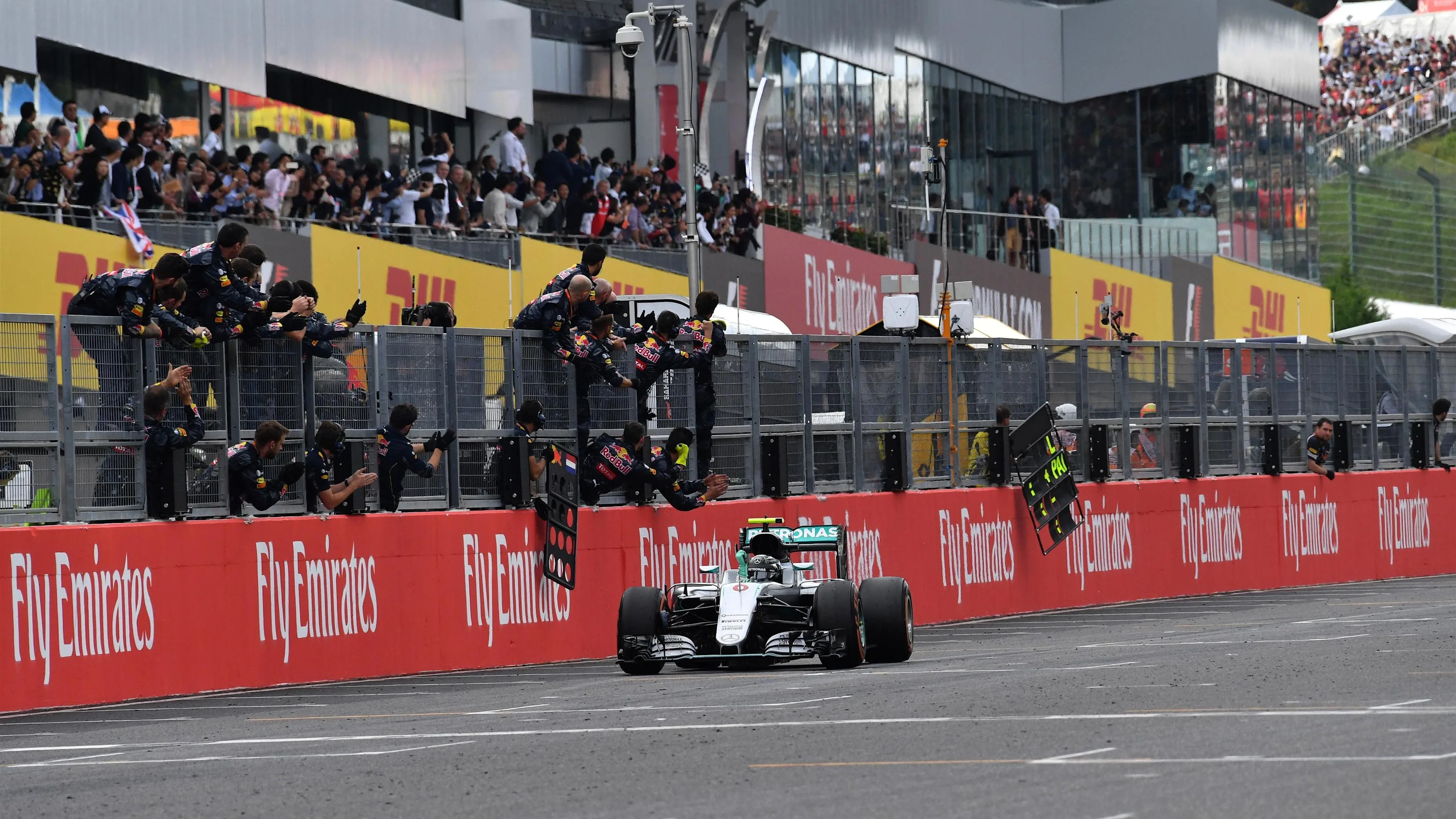
Rosberg's victory at Suzuka would be his last of the season, as Hamilton wound the pressure up in the final races
The title showdown
Crucially, Rosberg beat Hamilton to pole in Suzuka by 0.013s, and as he duly converted the win, Hamilton had to settle for third behind Verstappen after yet another bad start and recovery drive. Now the title was Rosberg's to lose. With 313 points to Hamilton's 280 he could afford to finish second in three of the four remaining races and third in another, even if Hamilton won them all.
That's almost what happened, as the Englishman dominated in the United States, Mexico, Brazil and Abu Dhabi, to surpass Alain Prost's tally of 51 F1 victories and move into second place in the all-time winners' list behind only Michael Schumacher. But with four second places, the last of which was won in the most trying circumstances as his team mate tried to back him into rivals Vettel and Verstappen (Hamilton's only hope of keeping his title was if Rosberg fell to fourth), Rosberg held on to emulate his father's 1982 success and take his first title.
He did it the hard way. Final points, Rosberg 385, Hamilton 380.
Five days later we learnt that, again like his father, it would be Rosberg's only title. Ten years on from his F1 debut with Williams, and having finally achieved his childhood dream, the 31-year-old took the brave decision - one which so few top sportsmen manage to time correctly - and opted to quit whilst at the very top of his game, safe in the knowledge that his F1 legacy would thus remain forever untarnished.
How did the teams compare?
In Mercedes' wake the Red Bull versus Ferrari battle was initially intense. But a revised Renault engine prior to Monaco suddenly gave the former's RB12 a new lease of life, and thereafter the Austro-British team generally had a slight advantage.
Both teams were faster in races than they were in qualifying, as they didn't have Mercedes' ability to turn up the wick for Q3. There were indications, however, as things closed up in the final races, that post-Malaysia Mercedes were often more conservative in the interests of avoiding another engine failure.
Replacing Kvyat with Verstappen after the first four races was an inspired move by Red Bull's motorsport boss Helmut Marko, and immediately the Dutchman showed that he deserved the place. He was often quicker than renowned fast qualifier Ricciardo, but the Australian was just as impressive on Sundays - re-enforcing the idea that Red Bull have one of the best driver pairings of all. Verstappen is going to be awfully hard to beat in the future.
Ferrari combined a lot of changes to their powerplant with pushrod front suspension and superior aerodynamics and initially their new SF16-H looked quite good. With better strategy they should have won the opening race, but then they stagnated. Their cause was undoubtedly hurt by the indisposition of technical director James Allison after Australia, whose wife Rebecca succumbed suddenly to meningitis. And the Englishman's eventual decision to leave in order to look after his children had further impact as the season progressed.
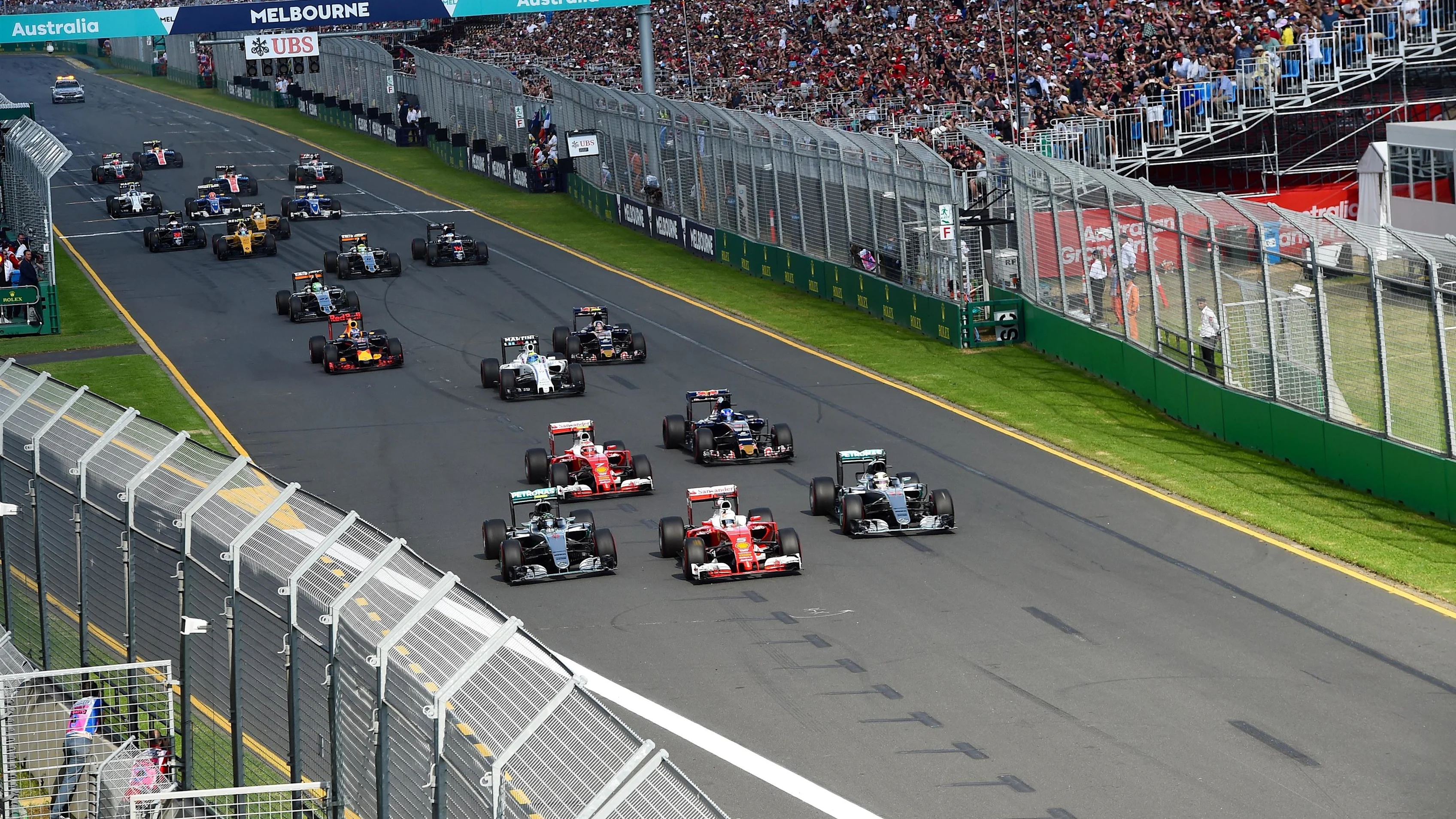
Ferrari ended the year without a win - but strategy arguably cost them victory in the Australian opener
Outside the top four, Force India stood head and shoulders above anyone else and thoroughly deserved to finish fourth overall - their best-ever result - after overtaking Williams, whose FW38 flattered in testing, but ultimately deceived. Sergio Perez and Nico Hulkenberg proved a great pairing, while this year Valtteri Bottas generally had the upper hand over Felipe Massa. In Monza the hugely popular Brazilian announced his intention to retire at the end of the year, and Williams confirmed his place would be taken by European F3 champion Lance Stroll.
McLaren and Honda came back with a big upswing after their terrible season in 2015, and steady improvements to the powerplant significantly enhanced its energy recovery and deployment characteristics. That enabled Fernando Alonso and Jenson Button to fight hard against midfield rivals, even while still some way down on power. McLaren finished a more respectable sixth overall, albeit with about half the points Williams scored, but there was controversy at the end of the season as Ron Dennis was ousted from managing the team by his fellow directors and shareholders.
Button announced that he would not be racing in 2017, and then in Abu Dhabi apparently bade adieu to F1. His replacement, Stoffel Vandoorne, stood in for the Melbourne-injured Alonso in Bahrain, and showed his class as he took 10th place and a point on his debut.
Toro Rosso looked good at times and James Key's STR11 was adjudged to be one of the best-handling 2016 cars, but it suffered reliability issues for a while and lack of grunt from its 2015 Ferrari powerplant. Carlos Sainz continued to impress, however, as did Kvyat once he got his confidence back. It should not be forgotten that, two races before his switch back to the team, he'd finished a great third for Red Bull in China…
Gene Haas' new team joined the ranks for 2016 and made an immediate impression with Romain Grosjean's sixth place in the opening race in Australia and then fifth in Bahrain and eighth in Russia. After a lean spell he did it again with seventh in Austria before picking up tenth in Texas. With 29 points and eighth place overall, Haas had the best debut of any 21st century team, far outstripping works efforts such as Jaguar and Toyota.
Renault's return as a fully-fledged manufacturer for the first time since 2009 was not easy, as the returned Kevin Magnussen and rookie Jolyon Palmer had to make do with a warmed over version of the previous year's Lotus E23, albeit without Mercedes power. Each had their difficulties, but they were pretty evenly matched in circumstances that did neither any favours.
Sauber fought successfully for survival, and got a bonus of two crucial points in Brazil courtesy of a brilliant drive from Felipe Nasr, while Manor got a point from Wehrlein in Austria to hold the vital 10th place for a while, before ultimately losing out after Sauber's South American success.
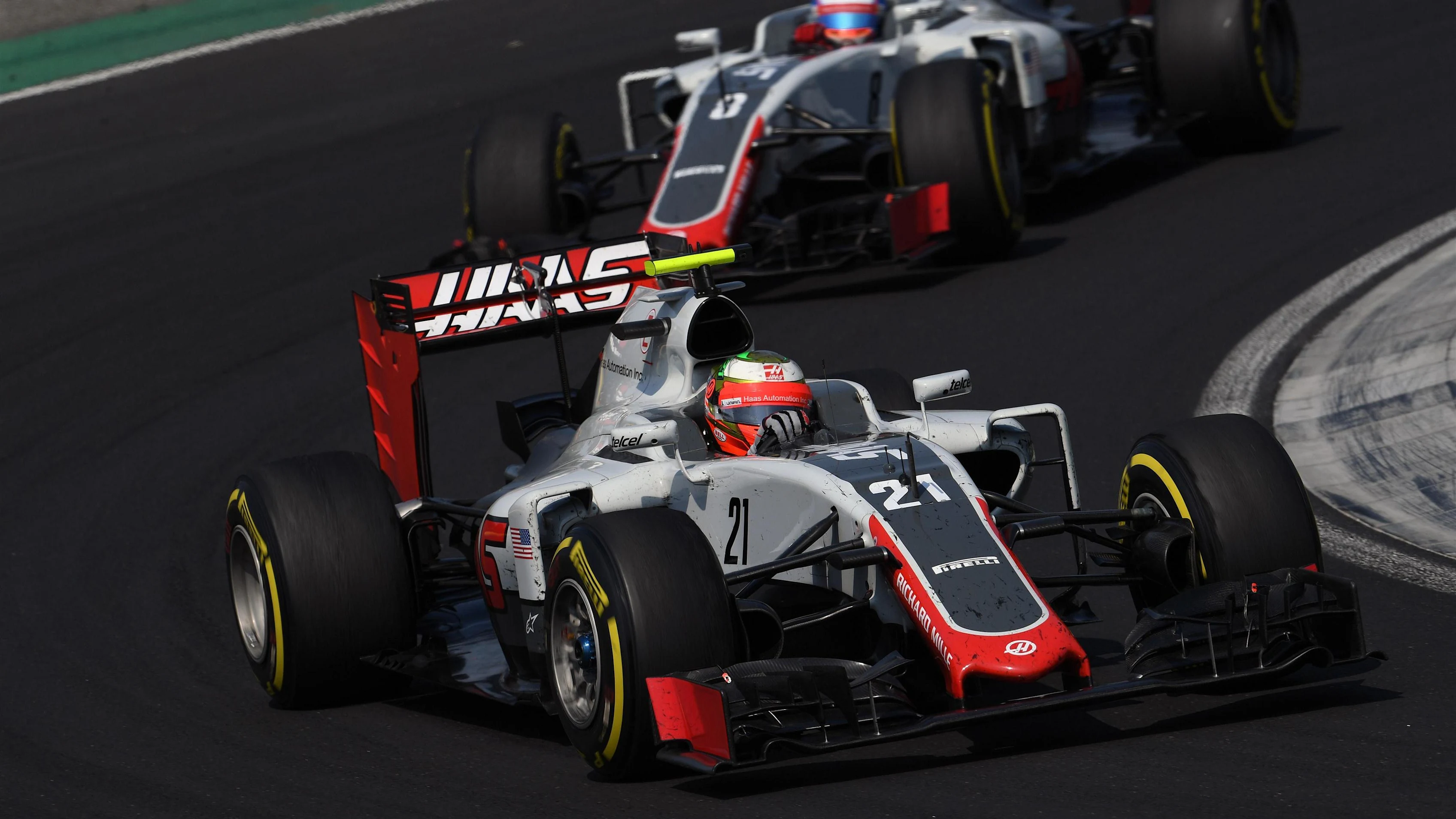
Haas picked up 29 points in their debut season - the best by any new team this century
What else did we learn?
Pirelli's introduction of a third slick compound - the ultrasoft - spiced up the racing still further as it facilitated different strategies, while perhaps the less said of the controversial 'knockout' qualifying system that was persisted with for the opening two races, the better.
2016 was the longest F1 season in history with 21 rounds, and the new European Grand Prix - staged on a stunning, high-speed street circuit around the picturesque Azerbaijan capital of Baku - was deemed a very welcome addition to the calendar.
The imminent arrival of new owners Liberty Media - announced after Monza in September and due to be completed early next year - promises potential change for Formula One's future, and was greeted in positive fashion by the F1 fraternity and fans alike.
It may not have been to all his colleagues' liking - indeed it prompted FIA race director Charlie Whiting to issue clarification on what constitutes acceptable defending - but Max Verstappen's driving won him a legion of new admirers, as illustrated by his huge success in another popular 2016 addition, the online Driver of the Day vote held at the end of each race. The Dutchman took the honours on no less than eight occasions.
In conclusion, fans can look back on a gripping 2016 season secure in the knowledge that next year is going to be even more fascinating. New regulations are to set to shake up the order, with wider tyres, more downforce and faster cars. Plus we already know that we are guaranteed a change of world champion!
Roll on 2017...
Next Up
Related Articles
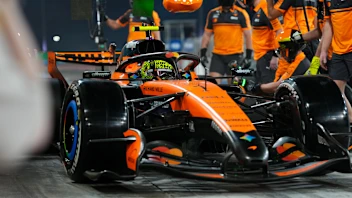 BettingHow F1 rule changes could impact betting markets
BettingHow F1 rule changes could impact betting markets.webp) Hadjar reflects on working with ‘very open’ Verstappen
Hadjar reflects on working with ‘very open’ Verstappen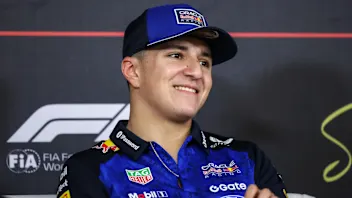 Perez and Albon offer Hadjar advice on second Red Bull seat
Perez and Albon offer Hadjar advice on second Red Bull seat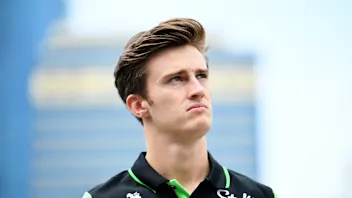 F2 champion Pourchaire joins Mercedes as Development Driver
F2 champion Pourchaire joins Mercedes as Development Driver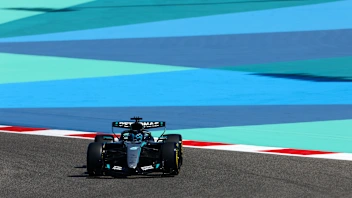 BettingF1 betting odds catching the eye after second test
BettingF1 betting odds catching the eye after second test UnlockedPredict the Australian GP Winner for a chance to win
UnlockedPredict the Australian GP Winner for a chance to win